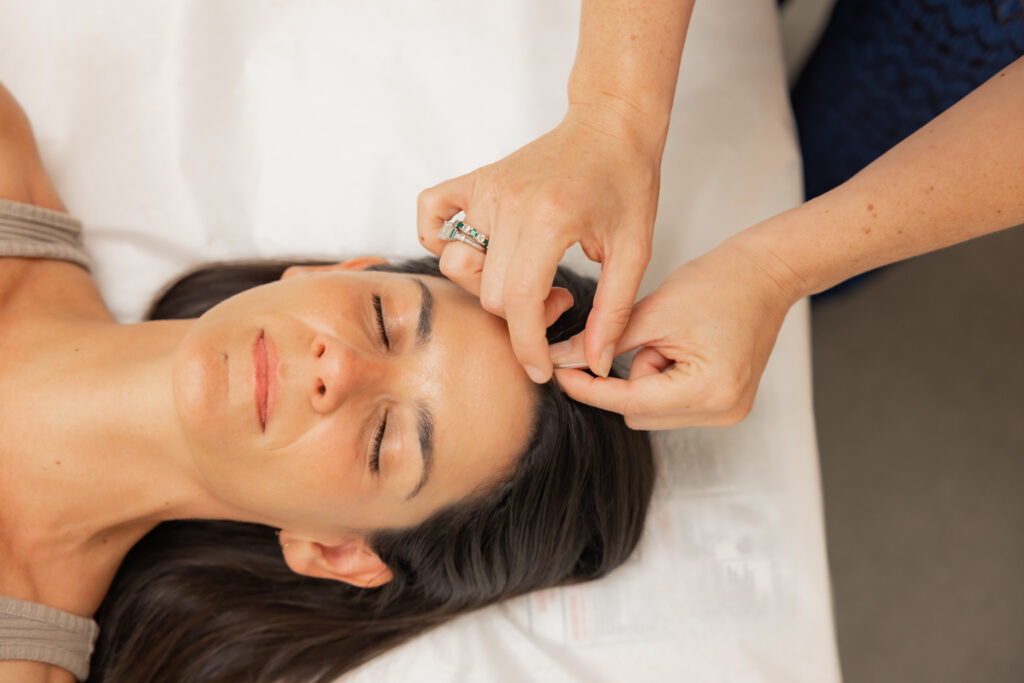Acupuncture

Acupuncture is a part of a system of medicine called Traditional Chinese medicine (TCM) that has been in use for at least two thousand years in China and all over Asia. It is based on the theory that we have energy or Qi that flows through pathways called meridians which run throughout the body. There are over 2000 acupuncture points located on the meridians which are each associated with an organ system.
How does Acupuncture work?
When these meridians become blocked, according to TCM, we have disruptions in the flow of Qi that puts the body out of balance. These blockages can be caused by injury, poor diet, emotions, stress, lack of sleep, as well as external factors such as the weather, environment and pathogens such as viruses and bacteria. By restoring the smooth flow of Qi the body can be brought back into balance and harmony.
During an acupuncture session, endorphins are released, which are the body’s natural opioid hormones that relieve pain, induce sleep, and create a state of wellbeing.
Acupuncture has been shown to turn off pro-inflammatory cells known as M1 macrophages and it activates anti-inflammatory M2 macrophages at the same time. These create an immune response which, in turn, reduce pain and swelling.
It also works by stimulating the pituitary and hypothalamus glands which control many functions in the body and affects the neurotransmitters and neurohormones, thereby changing the chemistry of the brain.
What does Acupuncture Treat?
Acupuncture has been approved by the National Institute of Health for treating a wide variety of ailments including pain (joint, back, sciatic, tennis elbow, dental, neck), injuries, arthritis, asthma, digestive issues, smoking cessation, headaches, infertility, hormonal issues, depression, anxiety, labor pains, stroke, nausea, and opioid addiction to name a few.
Acupuncture’s benefits include many other health conditions including mental health issues such as anxiety and depression in as little as 8 weeks.
What to expect during an Acupuncture treatment?
The length of treatment varies, depending on whether a condition is acute or chronic. Often if a patient comes for an acute back spasm only 3 to 6 treatments are required. For long term issues due to stress or more constitutional imbalances, such as digestive or menstrual issues, treatments are needed for a few weeks or even months in order to bring the body back to balance and keep it there. If the underlying stressor or cause is not removed then maintenance treatments are needed to keep things in balance.
There are no side effects of acupuncture thereby making it an excellent choice for many health issues and as part of a preventive maintenance program.
